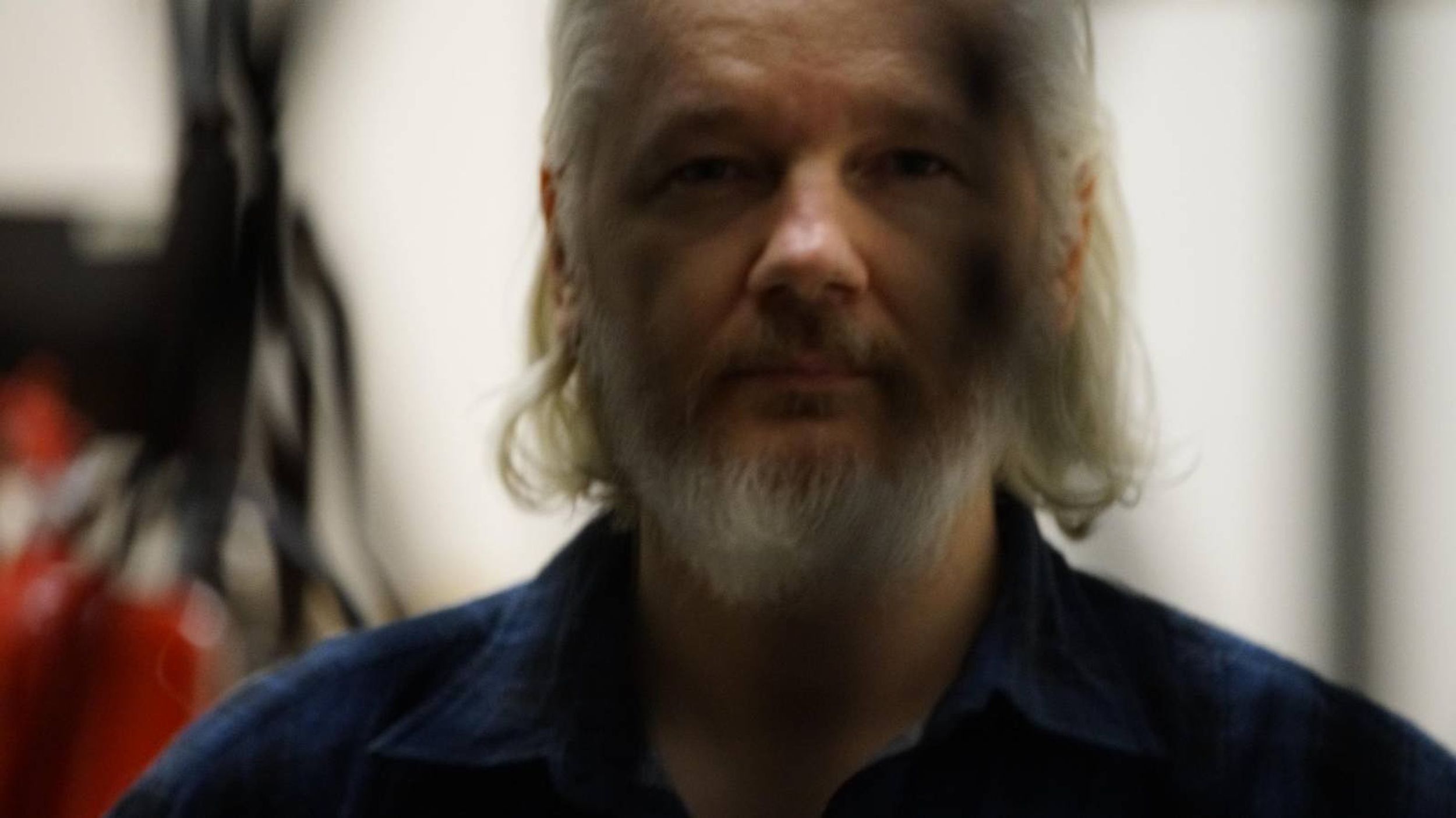The Six Billion Dollar Man
The Six Billion Dollar Man
VERDICT: If great men deserve great documentaries, director Eugene Jarecki’s exhaustive profile of Julian Assange could hardly be bettered.
Whether you like The Six Billion Dollar Man will largely depend on your feelings about Julian Assange. Think he’s an interloper who has no business doing the thing he’s most famous for? Then you won’t like the documentary. Think he did humanity a service by revealing to the public what governments are up to? Then you’d say Eugene Jarecki’s latest is a work to be treasured. But no matter the side you fall on, you are likely to admire the breadth, the effort, the scale of this exhaustive profile film.
The Six Billion Dollar Man is a masterwork and a near-masterpiece. The film goes back and forth across Assange’s life and is told in chapters, the meat, undoubtedly, being the events that followed the film’s subject after he jumped bail in the UK, entering the Ecuadorian embassy in London to seek asylum. That 2012 event added the South American country to a cross-national intrigue already involving the US, the UK, and Sweden. Jarecki’s chronicle of the life and times of the intrepid Australian is a massive monument to an unusually heroic stubbornness. It makes its Dutch debut at IDFA this week after premiering at the Cannes Film Festival in May. It won’t be the last place it shows up. Already, rights to the film have been scooped.
Jarecki pulls back the curtain to reveal the complex history that allowed Ecuador defy whatever pressures were applied by the US government, as it sought extradition. In his telling, the reason President Rafael Correa could do this lies in the complex history Ecuador has with the US. Jarecki’s job, in one sense, is to present what is a crazy story in modern politics into something that is watchable without sacrificing the facts. He excels on both fronts. To grasp the weight of the work the director set for himself, take a look at the length of the Assange Wikipedia page. All of that information — including new interviews with significant players in the story — are boiled down into a tale lasting just over 120 minutes. That he manages to make an entertaining package while at it is doubly impressive.
Assange is just as impressive and it is a minor disappointment that the film doesn’t attempt some psychoanalysis of the man. What are the experiential makings and inner workings of a man so obdurate he risks his freedom and the likely lethal ire of several powerful countries by publishing highly confidential documents? We’ll probably never know. What we do know is that for over a decade the man behind Wikileaks became some kind of bargaining chip. Among the many documents that add up to Jarecki’s account, one literalises that bargaining chip. And it will come as no surprise that the man involved in the literal bargain is President Trump, one of three US presidents who, over the course of their tenure, become invested in capturing the man who was then the world’s most notorious publisher.
A well-known deal-maker, Trump had his government arrange a pact with Ecuador that would involve the exchange of cash for the man holed up in their embassy in London. It is the monetary part of this deal that bestows the title of this film. This section of the story, unfortunately, also contains the documentary’s main problem. In a bid to make Trump into some of kind of evil everyman, screen time is spent adding images from the January 6 Capitol Attack into a narrative that, frankly, has absolutely no use for it. This needless passage in an otherwise clear-eyed project comes to feel like the product of what has been tagged Trump Derangement Syndrome.
This section can only be seen as a misjudgment because otherwise this is an excellent piece of work. The Six Billion Dollar Man deserves to be spoken about only in superlatives. If a great man deserves a great documentary, Jarecki has delivered exactly what is required.
Director: Eugene Jarecki
Producer: Kathleen Fournier
Co-producers: Andrew McLain, Molly Bareiss, Claudia Becker, José Passarelli, Juan
Passarelli
Executive producer: Mathilde Bonnefoy, Geralyn White Dreyfous, Addison Odea,
James Packer
Cinematography: Joe Fletcher, David McDowall, Jack Harrison, Derek Hallquist,
Juan Passarelli
Editing: Martin Reimers, David Fairhead, Simon Dopslaf, Zora Schiffer
Music: Niklas Paschburg, Akin Sevgör, Robert Miller, Belief Defect
Production companies: Charlotte Street Films (US)
World Sales: WME Independent
Venue: IDFA (Signed)
In English
129 minutes

